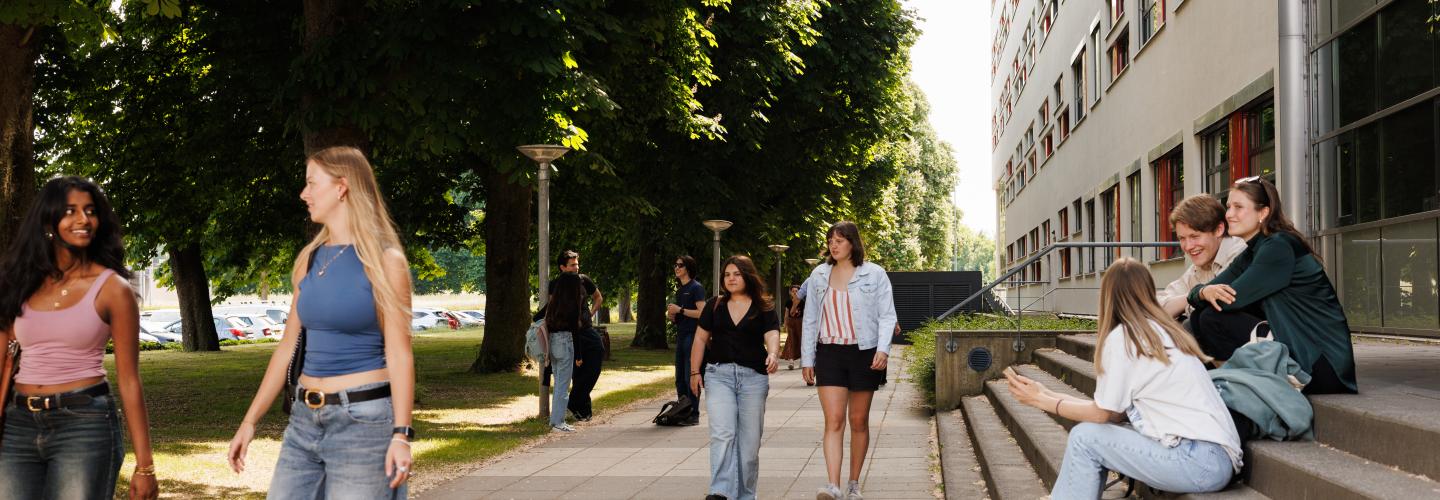Why this programme
In today’s world, where health and well-being are more important than ever, the field of Human Movement Sciences holds increasing relevance. Human beings are built to move, but modern life has become increasingly sedentary — leading to chronic conditions like obesity, cardiovascular disease, and type 2 diabetes. As a result, governments and health organisations are recognising not only sports and exercise, but also general physical activity as a critical public health issue.
Understanding the biological basis of health benefits will aid in tackling these problems. This programme covers all aspects of the relationship between physical activity, health and performance – from patients trying to get better, to individuals just trying to stay fit, to top athletes aiming for the pinnacle of their sport.
This programme is for you if:
- you have a keen interest in understanding the role of physical activity in the prevention and treatment of disease, and the role of physical exercise and nutrition in (sports) performance,
- you are passionate about translating science to optimize human movement in relation to general health, aging, disease, and performance,
- you want to promote physical activity as an answer to contemporary health issues.
A biological and physical angle to health
As a Human Movement Sciences student, you will learn to apply biological knowledge of cells, tissues, organs and entire organisms to address questions such as; How can we combat health problems using knowledge of the biological and biophysical mechanisms involved in physical activity? How can we help older people to remain mobile and independent? And how can we train athletes to become Olympic champions?
Tailor your degree
The programme offers a great deal of variety, with courses covering themes as diverse as nutrition, muscle & brain function, energy production and metabolic profiling. Before the start of your studies, you choose between two specialisations: Health and Rehabilitation or Sports and Nutrition. Within the set courses for these specialisations, you will also have plenty of room to concentrate on specific areas of interest. To finalize your degree, you will perform an individual 4- to 5-month research-driven internship/placement, providing you the opportunity to pursue your own focus within the programme.
So whether you would like to become a sports counsellor, work as an exercise scientist or even plan to start your own company in exercise promotions after you graduate, the programme ensures that you can obtain all the academic knowledge and skills you need to get your career off to a great start.
State-of-the-art facilities
Human Movement Research at Maastricht University focuses on understanding the biological principles behind human movement and applying this knowledge to develop effective intervention strategies to maintain health throughout the lifespan. This involves biomechanics, exercise physiology, and neuroscience of human movement, as well as (sports) nutritional science. Examples of ongoing research are moving in the virtual world, inactivity physiology and muscle adaptation and health.
At the Faculty of Health, Medicine and Life Sciences, you will be able to access a fully equipped experimental laboratory. Both in education and research, we use state of the art equipment for exercise physiology and human motion analysis. Available facilities include:
- Metabolic Research Unit Maastricht (MRUM)
- Computer Assisted Rehabilitation Environment (CAREN)
- Muscle physiology laboratories
- Clinical Research Unit
The strengths of our faculty
Employability
We emphasize the development of important skills that are valued in the labour market. Our educational system, which focuses on small-scale educational activities, promoting autonomy in students, and stimulating collaborative learning in groups, trains you to function efficiently, plan your work efficiently, and communicate and collaborate effectively. Our faculty members have extensive networks, which allows for the contribution of eminent scientific experts and practitioners, as tutors, lecturers and research supervisors. Each year, we organize a career event where we invite alumni and create networking opportunities.
Master’s thesis research
You have a wide range of options for conducting your thesis research. You can do your thesis research in an academic setting, but you can also opt for options outside of the university. We have a strong network with hospitals, rehabilitation centres, health institutes, and sports organisations within the Netherlands and internationally. In addition to our fixed offer, it is often possible to accommodate requests for specific Master’s thesis topics. The topics and placements are communicated very early in the year, allowing sufficient time for you to choose and find a fitting topic.
Embracing our diverse student population
We welcome students with various academic backgrounds into our programme. Some students come from Bachelor’s programmes at a Dutch university, or university of applied sciences, whereas others arrive in Maastricht with similar degrees obtained elsewhere in the world. Diversity in our programme enhances learning and we actively promote that diversity. In addition, some students enroll in the programme full-time, whereas others opt to do so part-time, combining their Master’s program with their occupation and/or family life. The expertise and experiences that come with this diversity provide us with unique possibilities to learn from and with each other.
PREMIUM honours programme
Want to gain that extra edge by getting real world experience during your studies? The PREMIUM honours programme will help you gain the experience and develop the skills employers are looking for. As part of a team of students and under the guidance of our academic staff, you will spend about three months working on a real-world assignment for a company, NGO or educational institution. You will also work on a personal development plan, receive intensive individual coaching and attend master classes and workshops. All of this will take about 250 extra hours, but it will give you a lifetime of benefits.
